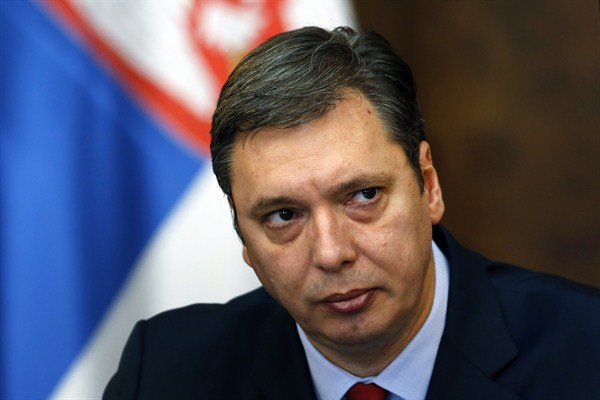In early September, Serbia, an aspiring European Union member, conducted a military drill with two people on the EU’s bad list: Russia and Belarus. In Novorossiysk, Russia, in an exercise known as “Slavic Brotherhood,” paratroopers from the three countries played war games and practiced crushing a Maidan-style revolt.
“Who can lecture us?” said Serbian Foreign Minister Ivica Dacic, responding to questions about what impact the drill would have on his country’s image in Brussels. “The European Union is not a military bloc. Let them mind their own business.”
The EU was not impressed, given the diplomatic energy it has expended over the past year and a half trying to normalize Serbia-Kosovo ties. Ongoing diplomatic dialogue between Serbia and its former province Kosovo, brokered by the EU, has been winning Belgrade consistent points from Brussels and promises to open negotiations on Serbia’s EU membership, as soon as the agreements made with Kosovo are implemented.

